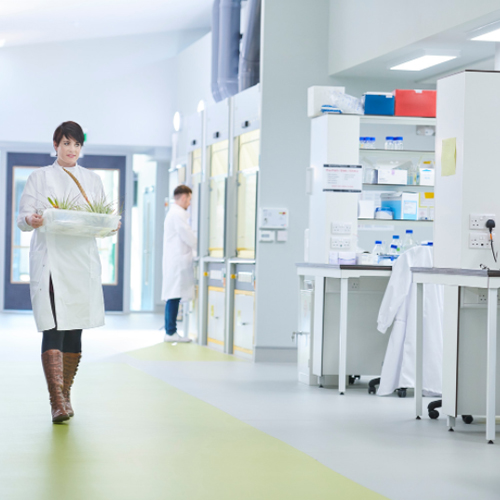University Labs: Fume Hoods, Lab Furniture, and Lab Design
LabDS delivers educational and university lab design services, high-quality fume hoods, and vital lab furniture.
At Laboratory Design & Supply (LabDS), we work with educational facilities, colleges, and universities across the United States to design and implement laboratories, custom-design fume hoods, and identify and install the correct lab furniture. Our constant goals in lab design and implementation are adherence to federal, state, and county rules and regulations, safety, and quality. From epoxy countertops to modular fume hoods and casework that allow scaling up or down, the LabDS team delivers a flexible, sustainable, safe university lab design.

All laboratories must be designed with safety and functionality in mind. Scalability is also a vital concern to meet changing needs. However, university labs face unique requirements, including government and industry standards and regulations. For instance, university lab designs must comply with the Federal Code of Regulations, Title 29, Labor, the National Fire Protection Association Handbook 70: National Electric Code, the American National Standard for Laboratory Ventilation (ANSI/AIHA Z9.5-2012), and more.
In addition, state and county regulations must also be understood and followed at all times. At LabDS, we adhere to all regulations, standards, and references while simultaneously understanding the goals, budgetary constraints, and scalability requirements of each university partner.
While each laboratory design will be unique, several common steps must be followed during the initial ideation sequence and the subsequent design process.
- Type: What type of university lab is required? Teaching laboratories and research laboratories have vastly different requirements.
- (Note that if the laboratory will be used for teaching students, it is important to establish what subject will be taught and how that will impact the fume hoods, table/bench design, and other requirements.)
- Use: Will the laboratory be dedicated to a specific use need or will it need to be flexible and accommodate different uses?
- Chemicals: What types of chemicals will be used in the laboratory? How will they be used? What precautions are necessary for use and storage? What are the specific dangers/risks of those chemicals?
- Equipment: What equipment will be used? Will it be bench-mounted? Floor-standing? How will electricity, water, or gas be routed to that equipment?
- Size: What is the baseline for class size? How many teachers/instructors will be present? Will there be a central instruction bench/table?
- Storage: How much storage is required? What must be stored? Will storage need to be fixed or movable?
- Services/Features: How will gas, electricity, and water be routed throughout the space? What type of water will be needed? How many safety showers are required? How will ventilation be run? How will humidity and temperature be controlled?
We’ve worked with universities across the US to design and install the appropriate laboratories. While each laboratory is unique in terms of design, scope, purpose, and scalability, most require similar types of laboratory equipment. At LabDS, we can provide a variety of lab furniture and equipment, from fume hoods to casework, and everything in between.
Learn More
Learn More
Learn More

